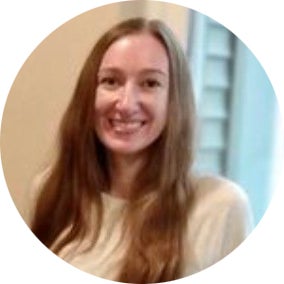Dana Schmidt (’24)

Microbiologist III
Serology Department, Communicable Disease Division, Wisconsin State Laboratory of Hygiene
Staying informed about the latest developments in microbiology and maintaining a strong online presence have made me a more attractive candidate to potential employers.
About Dana
Dana Schmidt graduated in May 2024 with an M.S. in Biohazardous Threat Agents & Emerging Infectious Diseases.
Tell us about your current work. How did you get your current position?
I am a state public health microbiologist at WSLH – Communicable Disease Division (CDD) for the past 6+ years. I started in specimen receiving in 2018 and then transferred to the Serology Department in 2020 right before the COVID-19 pandemic. As a senior microbiologist, I perform, develop, evaluate, validate and manage clinical testing services within the Serology Department for diagnostic, surveillance, and screening purposes.
Some of the testing I perform includes Hepatitis, STI, Immune Statuses, and Arbovirus testing. Additionally, I perform select agent testing in our BSL-3 when rule-outs from local hospitals and clinics arrive or in collaboration with other state and federal agencies in regard to suspect bioterrorism events.
What advice would you give to current graduate students who are preparing their application for another advanced degree program?
I would offer the following advice based on my experiences:
- Start the application process well in advance to give yourself ample time to gather all necessary materials and refine your application.
- Thoroughly research the programs you’re interested in to ensure they align with your academic and career goals.
- Customize each application to highlight how your background, skills, and interests align with the specific program.
- Seek feedback from professors, mentors, or peers to review your application materials, as their insights can be invaluable in refining your personal statement and other documents.
- Clearly articulate your academic and professional accomplishments, research experiences, and any relevant skills, using specific examples to demonstrate your qualifications.
- If the application process includes interviews, practice common questions and be ready to discuss your research interests, career goals, and why you’re interested in the program.
- Stay organized by keeping track of deadlines, required documents, and submission guidelines for each program, using a spreadsheet or checklist if necessary.
- Finally, be honest and authentic in your personal statement and interviews, as admissions committees appreciate genuine passion and a clear sense of purpose.
By following these steps, you can create a compelling application that showcases your strengths and aligns with your future aspirations.
What strategies did you use to build your network and find job opportunities?
I’ve employed several key strategies:
- First, I joined professional organizations like the American Society for Microbiology (ASM) and Association of Public Health Laboratories (APHL), which gave me access to valuable resources, conferences, and workshops where I could meet peers and potential employers. Attending these events, along with various seminars, helped me stay updated on the latest research and trends while expanding my professional connections.
- I also made good use of online platforms such as LinkedIn to connect with other professionals, join relevant groups, and follow industry news.
- Finding a mentor provided me with guidance and introduced me to new opportunities.
- For job searching, I frequently used specialized job boards and university career services to gain experience and make industry contacts. Another way to job search is through internships and fellowships. Networking events and direct outreach to companies or researchers of interest have also been effective methods.
- Staying informed about the latest developments in microbiology and maintaining a strong online presence have made me a more attractive candidate to potential employers.
What advice would you give to current or prospective students looking to get into your line of work?
For current or prospective students looking to enter my line of work as a state-employed public health microbiologist, I would offer the following advice based on my experiences and insights:
- First, focus on your education and training, ensuring you have a strong foundation in microbiology, public health, and related fields.
- Pursue relevant degrees and consider specialized training programs that provide practical laboratory experience and prepare you for certification if those are requirements for the job. Gaining practical experience through internships, fellowships, or volunteer opportunities in public health laboratories is crucial because it enhances your skills and helps you build a professional network.
- Staying informed about the latest developments in public health and microbiology, including emerging pathogens, advancements in diagnostic techniques, and public health policies, will make you a more competitive candidate.
- Developing strong communication skills, both written and verbal, is important as public health microbiologists often need to convey complex information to diverse audiences.
- Prepare thoroughly for the application process by tailoring your resume and cover letter to highlight relevant experiences and skills and be ready to discuss your qualifications during interviews.
- Lastly, be persistent and patient. Job markets can be competitive based on where the job is located and when you apply for the job.
